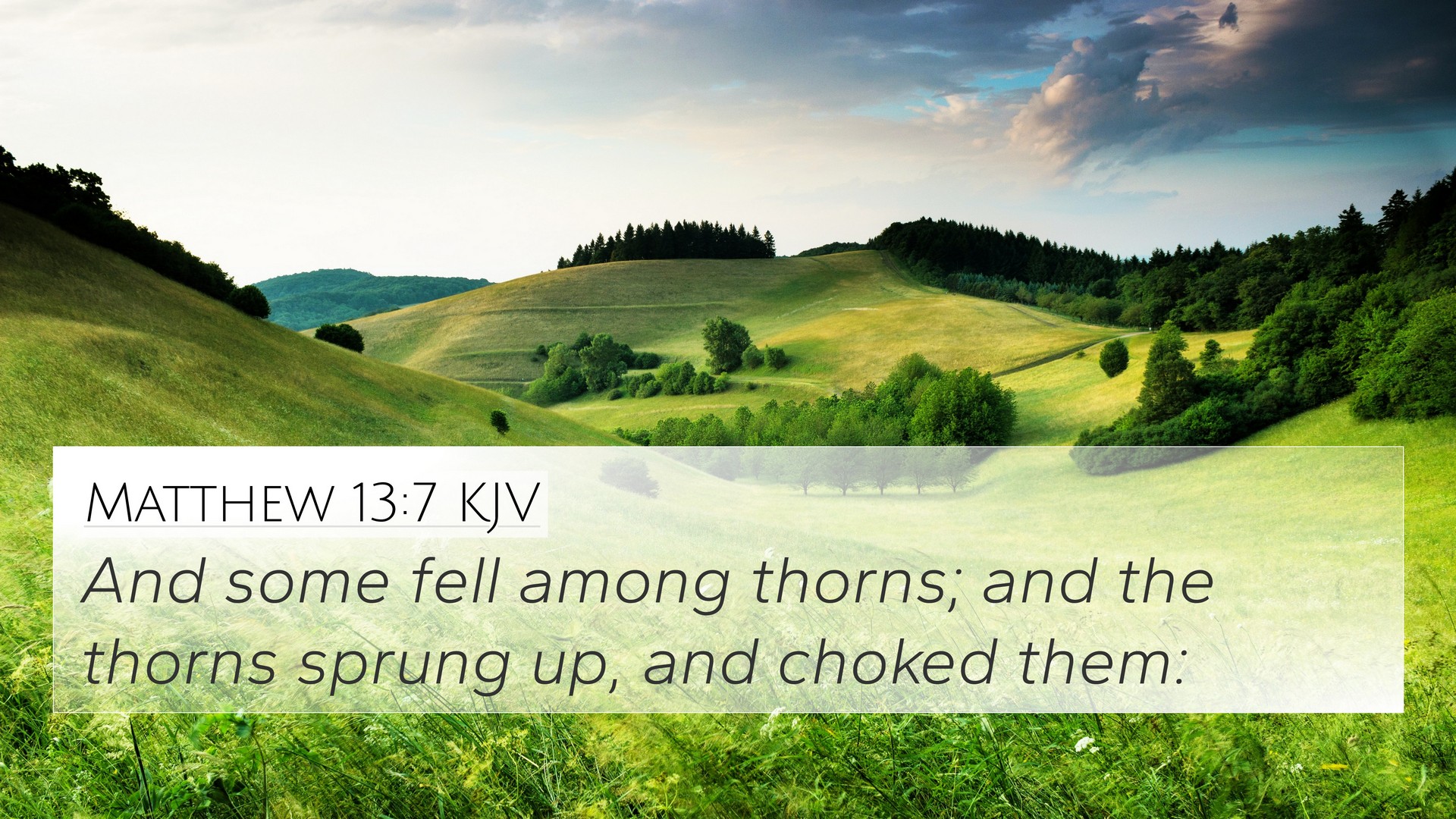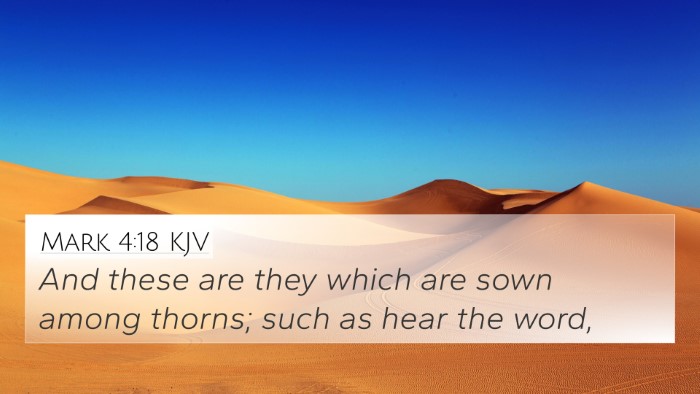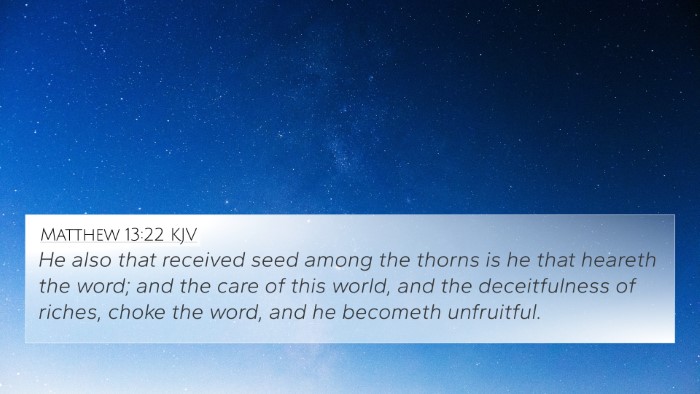Understanding Matthew 13:7
Bible Verse: Matthew 13:7 - "And some fell among thorns; and the thorns sprung up, and choked them."
Summary of Matthew 13:7
Matthew 13:7 is part of the Parable of the Sower, where Jesus describes different types of soil representing various responses to the Word of God. In this specific verse, the seed that falls among thorns symbolizes those who hear the Word but are overwhelmed by the cares of the world and the deceitfulness of riches, ultimately becoming unfruitful. The thorns signify distractions and temptations that can choke spiritual growth.
Commentary Insights
This section provides insights into the deeper meanings of this verse, drawn from esteemed public domain commentaries.
- Matthew Henry: Henry highlights the nature of the thorns as representing worldly cares that distract from a devoted life to God. He emphasizes that while the seed (the Word) is good, the thorns illustrate how external pressures can hinder spiritual productivity.
- Albert Barnes: Barnes points out that the thorns symbolize the various trials and struggles of life that can lead to spiritual barrenness. He notes that the richness of life can draw attention away from the divine, resulting in a lack of spiritual fruit.
- Adam Clarke: Clarke discusses the conditions of those represented by the thorns. He implies that acceptance of the Word initially exists, but the overwhelming influence of life's demands leads to a failure in bearing fruit, indicating a superficial faith.
Thematic Connections
The insights from public domain commentaries reveal key themes of spiritual unfruitfulness due to worldly distractions found in Matthew 13:7. Below are notable connections that further illustrate the implications of this verse:
- 1. Mark 4:19: A parallel account where Jesus describes how the cares of the world and desires for other things choke the Word, leading to unfruitfulness.
- 2. Luke 8:14: This verse also emphasizes that the seed that fell among thorns are those who, after hearing the Word, are choked by life's worries, riches, and pleasures.
- 3. 1 John 2:15-17: Warns against loving the world, reinforcing the lessons from Matthew 13:7 by stressing the temporary nature of worldly pleasures.
- 4. James 1:14-15: Discusses how desires (thorns) can lead to sin and eventual spiritual death, paralleling the choking effect seen in this verse.
- 5. Matthew 6:24: The impossibility of serving two masters echoes the conflicts described in Matthew 13:7, illustrating a divided heart.
- 6. Philippians 4:6-7: Encourages believers to not be anxious about worldly concerns, offering them peace contrary to the choking thorns.
- 7. Proverbs 4:23: Urges to guard one's heart diligently; this relates directly to the necessity of managing worldly distractions that the verse warns against.
Interpreting Through Cross-References
Cross-referencing Biblical texts can enrich our understanding of Matthew 13:7. Here are methods to deepen your study:
- Utilize a Bible cross-reference guide to explore related passages that discuss the theme of spiritual growth alongside worldly distractions.
- Consider employing a Bible concordance to locate other verses that mention 'thorns' or similar metaphors, providing further context.
- Engage in cross-reference Bible study methods, comparing themes across different books of the Bible to flesh out the implications of worldly distractions.
Conclusion
Matthew 13:7 serves as a poignant reminder of the challenges faced by those who hear the Word of God. By understanding the symbolism of thorns, believers can take caution against the distractions of life that choke spiritual growth. Through comparative Bible verse analysis, one can unlock deeper truths, allowing the Word of God to take firmer root in their lives.






